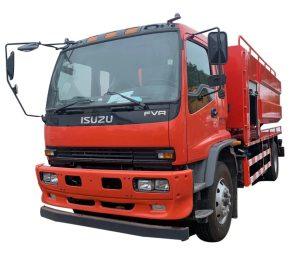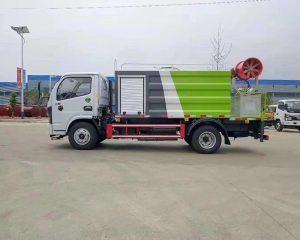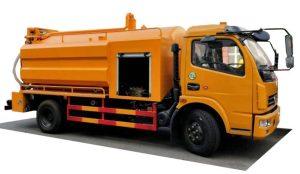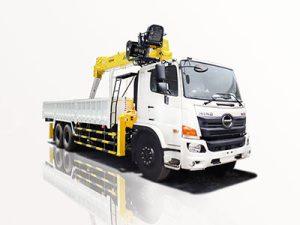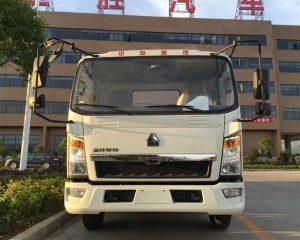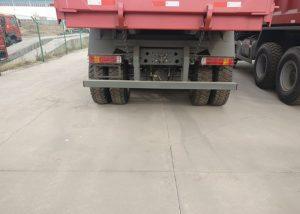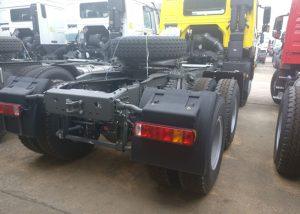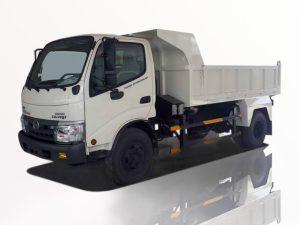Monday to Saturday - 8:00 -17:30
Understanding the Skip Waste Bin: A Complete Guide
When it comes to effective waste management, finding the right disposal method is crucial for both individuals and businesses. Skip waste bins have become a popular choice for many due to their convenience and efficiency. This comprehensive article will delve into everything you need to know about skip waste bins, including their types, uses, benefits, and more.
What is a Skip Waste Bin?
A skip waste bin is a large container used for storing and transporting waste materials. Typically available for hire, skips come in various sizes and are designed to hold large volumes of waste from construction sites, home renovations, and general cleanouts. They are often delivered and collected by specialized waste management companies, making them a hassle-free option for waste disposal.
The Different Types of Skip Waste Bins
Understanding the various types of skip waste bins available can help you choose the right one for your needs.
1. Mini Skips
Mini skips are the smallest option available, ideal for domestic projects like garden clean-ups or small renovations. They usually hold about 2-3 cubic yards of waste.
2. Midi Skips
These mid-sized bins are perfect for moderate waste removal, such as home improvements or larger cleanouts. They typically hold around 4-5 cubic yards of waste.
3. Builders Skips
Builders skips are designed for construction sites and can manage larger amounts of waste, usually accommodating 6-8 cubic yards.
4. Large Skips
For extensive projects, large skips can hold 10-12 cubic yards of waste. These are ideal for major renovations or commercial projects.
5. Roll-On/Roll-Off Skips
Used mainly in industrial applications, roll-on/roll-off skips are large containers that can handle bulk waste materials. Sizes can exceed 20 cubic yards.
Benefits of Using Skip Waste Bins
Utilizing skip waste bins offers numerous advantages, making them an attractive option for waste disposal:
1. Efficient Waste Management
Skip bins simplify the process of waste removal. Rather than making multiple trips to a landfill, you can dispose of large volumes of waste at once.
2. Saves Time
With skip bins being delivered and collected by a waste management service, you save considerable time and effort, allowing you to focus on your project.
3. Environmentally Friendly
Most skip hire companies are committed to environmentally responsible practices. They sort through the waste and recycle as much as possible, reducing landfill contributions.
4. Variety of Sizes
Skips come in various sizes, ensuring that you can choose an option that suits the scale of your project, from small cleanouts to large construction jobs.
How to Choose the Right Skip Waste Bin
Selecting the appropriate skip waste bin requires careful consideration. Here are some tips:
1. Assess Your Waste Type
Determine what kind of waste you will be disposing of—this can affect the type of skip you need. Certain skips are designed for specific materials, such as construction debris or garden waste.
2. Estimate Your Volume of Waste
It’s crucial to accurately estimate the volume of your waste. Misjudging can lead to needing an additional skip, which could increase costs.
3. Consider Accessibility
Ensure there’s adequate space for the delivery and pick-up of the skip bin, especially if the area is tight or heavily trafficked.
4. Check Local Regulations
Some areas require permits for skip bin placement, particularly on public roads. Be sure to check with your local council.
Loading Your Skip Properly
To maximize space and ensure safe transportation, loading your skip correctly is essential.
1. Break Down Larger Items
Disassemble larger furniture or fixtures to save space. This applies to items like tables, chairs, and appliances.
2. Distribute Weight Evenly
Evenly distribute weight throughout the skip to prevent it from tipping during transportation. Heavy items should be placed at the bottom.
3. Avoid Overfilling
Never overfill the skip; this is not only unsafe but may incure additional fees by the waste management service.
Common Uses for Skip Waste Bins
Skip waste bins serve a multitude of purposes for various types of waste disposal:
1. Home Renovations
Whether you are updating a room or entire house, skip bins can effectively accommodate old materials, fixtures, and debris.
2. Garden Clearances
Skip bins are ideal for disposing of garden waste, including soil, branches, and other landscaping refuse.
3. Construction Sites
Construction projects generate a lot of waste, and skip bins provide an easy solution to manage it efficiently.
4. Office Clearouts
When businesses downsize or relocate, they often need to dispose of outdated furniture, equipment, and other debris quickly and conveniently.
Cost of Hiring Skip Waste Bins
The cost of hiring a skip waste bin varies based on several factors:
1. Size of the Skip
Larger skips typically cost more. Your volume of waste will dictate the size needed.
2. Duration of Hire
Some companies offer daily, weekly, or monthly rates. The longer you keep the skip, the higher the cost may be.
3. Type of Waste
Certain types of waste may incur additional fees, especially hazardous materials that require special handling.
4. Location
Costs can also vary by geographical area. Urban areas may have different rates than rural locations.
Tips for a Successful Skip Waste Bin Experience
To ensure a smooth skip bin rental experience, consider the following tips:
1. Research Reliable Providers
Look for reputable skip hire companies with positive customer reviews to ensure you receive quality service.
2. Book in Advance
To secure a skip bin for your project, especially during busy seasons, book early to avoid delays.
3. Ask About Recycling Policies
Inquire about the company’s recycling practices to ensure that waste is managed sustainably.
4. Understand the Terms of Hire
Read the fine print and make sure you understand the terms and conditions before finalizing your booking.
Frequently Asked Questions (FAQs)
1. How long can I rent a skip waste bin?
Most companies offer rentals ranging from a few days to weeks. It’s advisable to clarify this when making a booking.
2. Can I put hazardous materials in a skip?
No, hazardous materials such as chemicals, batteries, and medical waste typically require special disposal methods.
3. What happens if I exceed the weight limit?
Exceeding the weight limit can lead to extra charges or refusal of collection. Ensure you are aware of the weight limits before loading.
4. Are there specific days for skip collection?
Most waste management companies will work with you to schedule a convenient collection time, but it’s best to confirm with them.
5. Can I place a skip on the road?
To place a skip on a public road, you usually need a permit from your local council. Check regulations to avoid fines.
6. What types of materials are prohibited in skip bins?
Prohibited materials can include tires, electrical appliances, and construction chemicals. Always check with your provider for a detailed list.


